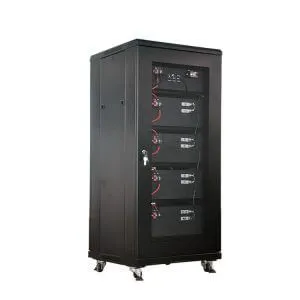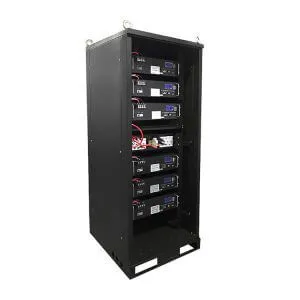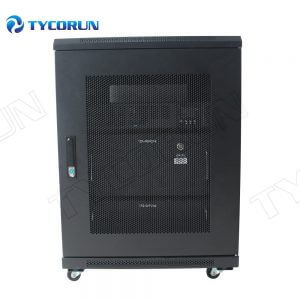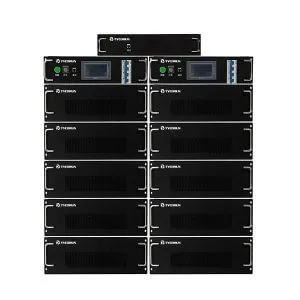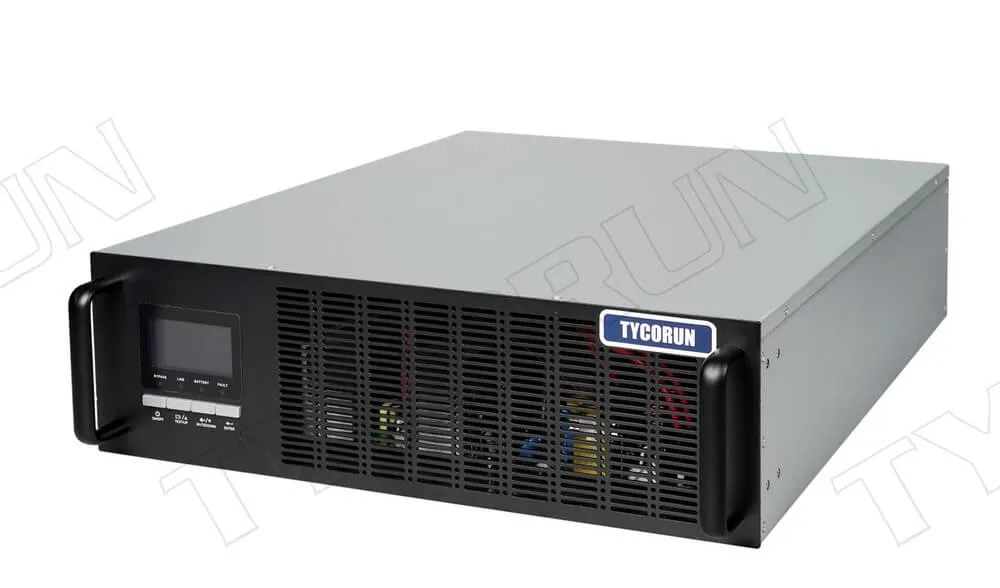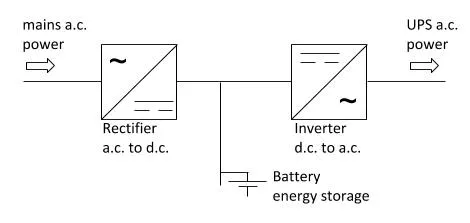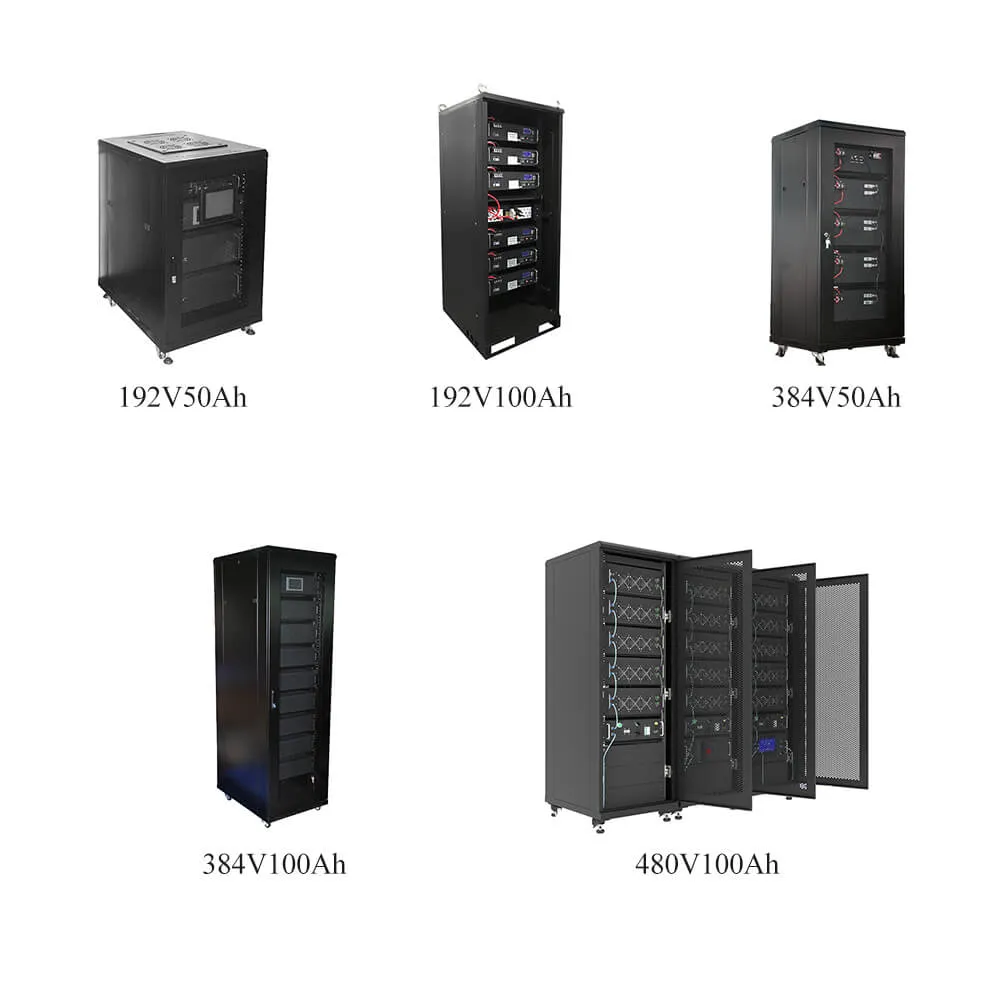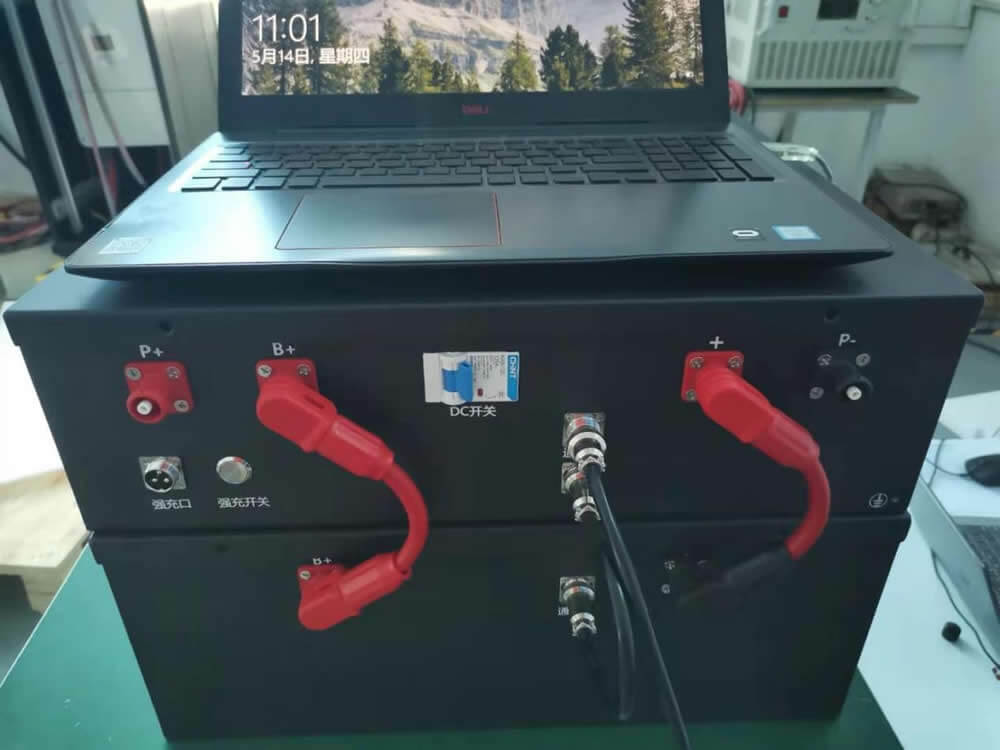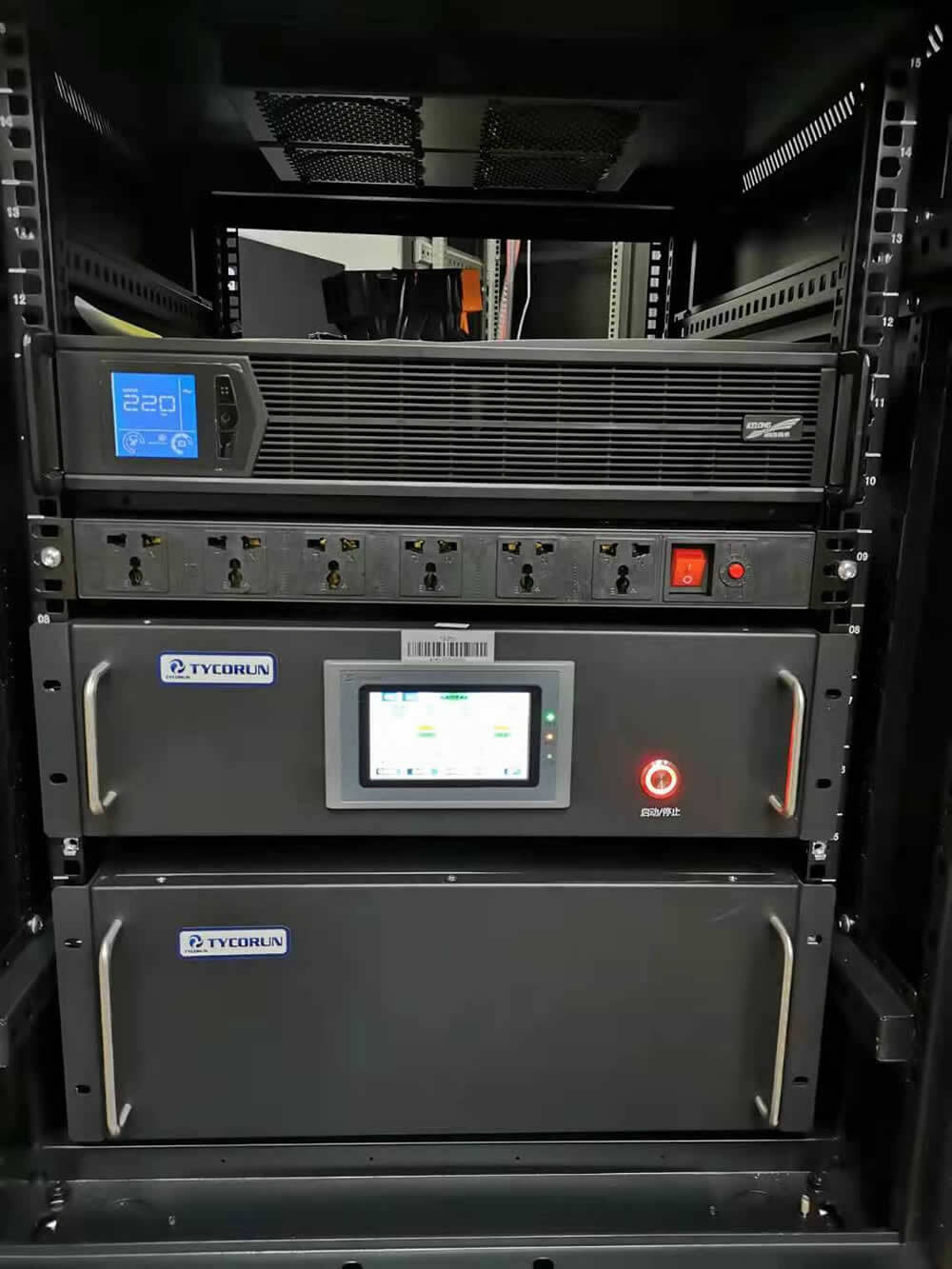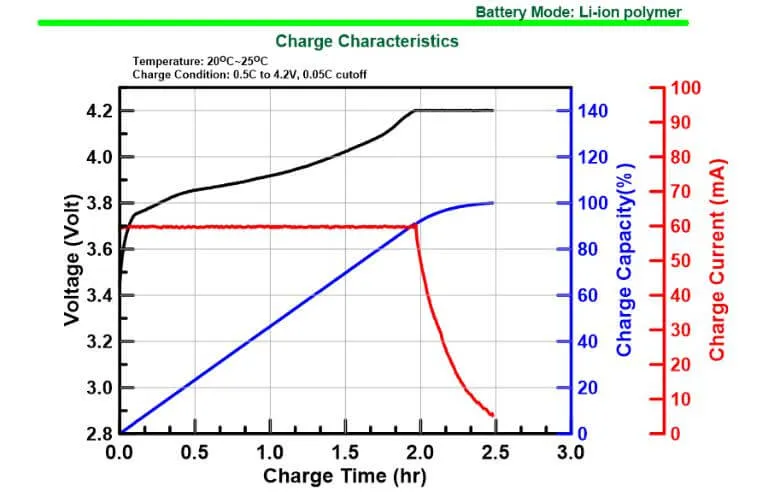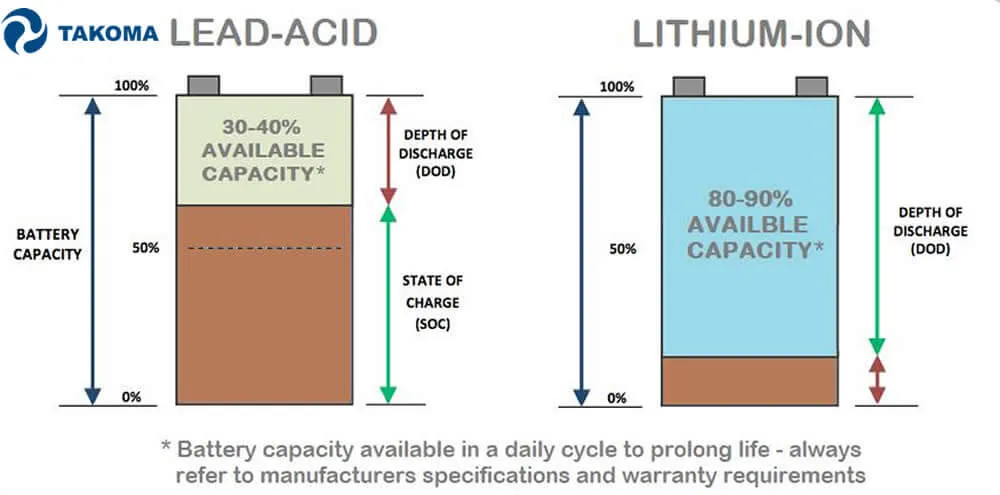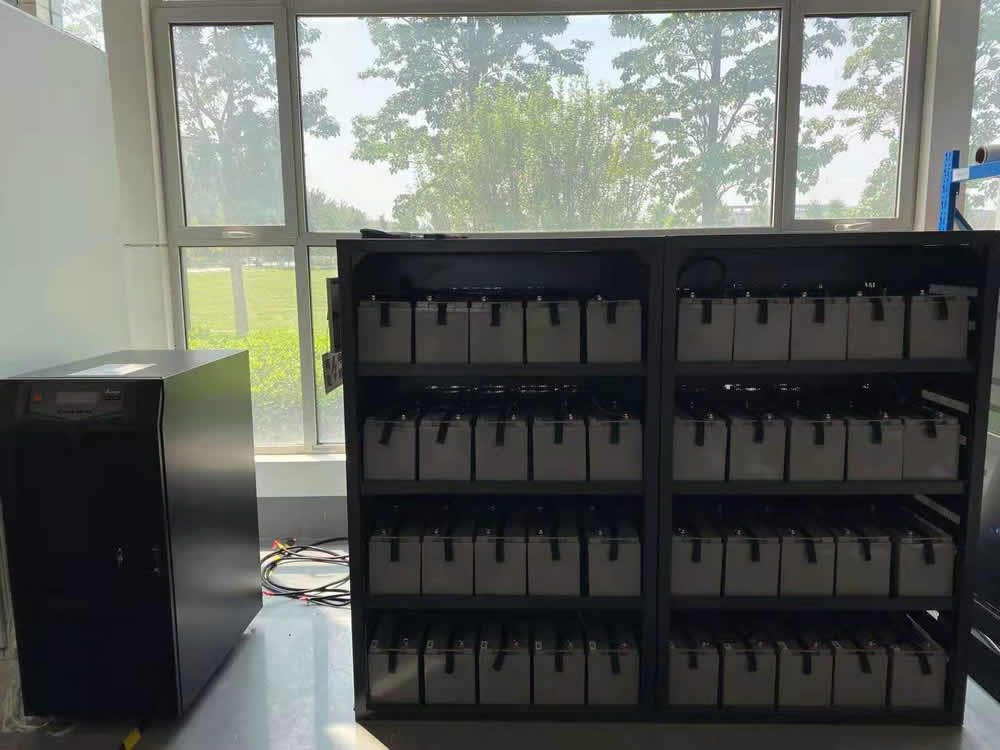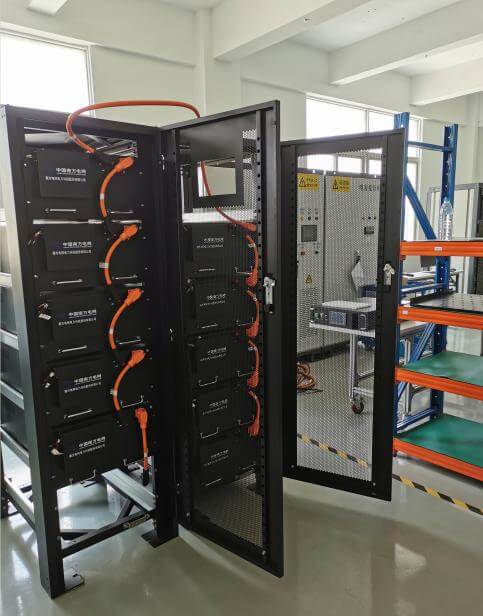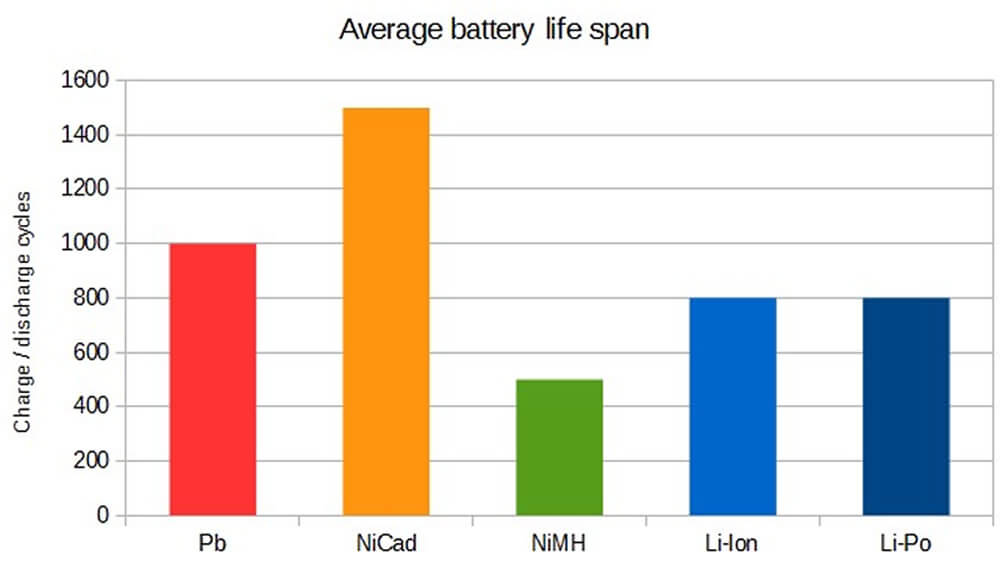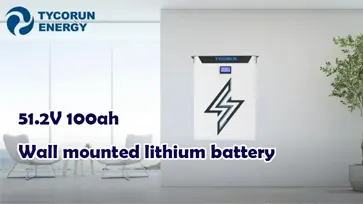UPS Lithium Battery: Ultimate FAQ Guide
Home » UPS Lithium Battery Ultimate FAQ Guide
UPS Lithium Battery
-
High Voltage lithium ion battery
384V 50Ah UPS lithium ion battery 20kwh lithium battery for UPS
-
High Voltage lithium ion battery
192V 100Ah UPS lithium battery rack type lifepo4 battery for UPS
-
High Voltage lithium ion battery
192V 50Ah UPS lithium battery high voltage LiFePO4 for UPS system
-
High Voltage lithium ion battery
480v 40ah lithium ion battery
UPS Lithium Battery: Ultimate FAQ Guide
As we all know, the development of uninterruptible power supply (UPS) systems has a history of decades. With the continuous upgrading of products, the UPS will also usher in an epic revolution.
As we all know that in the past that we all used lead-acid batteries as backup power and used them with UPS machine. However, with the rapid development of lithium-ion battery, lithium battery have begun to replace lead-acid battery. What’s more frightening is that this is an irreversible imagination. In other words, one day, lithium battery will completely replace lead-acid battery.
Currently, the application where lithium battery replace lead-acid battery on the market are mostly low-voltage solutions. The lithium battery used in UPS voltage ranges from 48V to 480V, and it will be even higher in the future.
In this article, you will learn more about UPS lithium battery.
- What is UPS?
- How UPS works
- How many types of battery for UPS?
- Can I use lithium batteries for UPS?
- What is UPS lithium battery?
- How is the development prospects of UPS
- Is lithium battery A Good Investment?
- What is the benefits of UPS lithium battery?
- Where to use a UPS lithium battery?
- What’s the application of UPS lithium battery?
- Which type of battery is good for UPS?
- Why to choose UPS lithium battery?
- How many voltage and capacity of UPS lithium battery can be chosen?
- What is the advantage of UPS lithium battery?
- What is the disadvantage of UPS lithium battery?
- What is the difference between UPS lithium battery and lead acid battery?
- Can I use lithium battery to instead of lead acid battery as replacement?
- Can I connect UPS-Lithium battery with lead acid battery?
- Can I connect UPS-lead acid with lithium battery?
- When should I replace UPS lithium battery?
- Can UPS work without lithium battery?
- How does the UPS lithium battery work?
- How can I set up UPS lithium battery?
- How many lithium battery needs for a UPS system?
- What Will happen when UPS lithium batteries fail?
- How much does a UPS lithium battery cost?
- How long does a UPS lithium battery last?
- What is the average life of a UPS lithium battery?
- How do I choose a UPS battery for my house?
- Who is the largest manufacturer of UPS lithium battery?
- Where can I buy UPS lithium battery?
1.What Is UPS
Lithium ion phosphate UPS Machine
UPS stands for uninterruptible power supply.
This hardware device also stands for an uninterruptible power source as well. As the name suggests, UPS handles a continuous supply of electricity.
When there is a significant reduction in the power source of a complete loss, UPS is there for you. This happens due to the several batteries in the UPS.
It can detect such loss or reduction of power in the primary loss.
So, in case of a failure in the main power, UPS provides emergency power. This device is important, especially when working on a PC and power goes off. It allows people to save work and shut down the computer by providing enough emergency power. In the past, most of the UPS manufacturer produce lead acid battery UPS, which only connected with lead acid battery for backup power. Recently lithium ion battery ups come out as following the growth of lithium ion battery. And most of the people think lithium ion battery ups will take more important part in future.
2. How UPS Works?
UPS Working (Photo Credit: myelectric)
Battery backup is another name for an uninterruptible power supply (UPS). The battery backup provides power when voltage drops during an electricity power cut.
When a sudden power cut happened the UPS saved our computer and help us to shutdown down a computer. The usage of UPS is very common nowadays. The switching of AC and DC inverter when the voltage falls and this is power from a storage battery. The whole phenomenon is based on the conversion of AC to DC or DC to AC again.
- Types Of UPS:
There are 3 types of UPS that provide a specific level of power protection. One is double-conversion, other is standby and line-interactive.
Double Conversion Ups:
Double conversion UPS is also known as Online UPS, it’s uses are on a large scale, computers and to protect security systems.
The purpose of the Online or Double Conversion UPS is to convert incoming AC power to DC or DC to AC. These UPS provide us fast and perfect power. Because the system of this UPS is automatic, and we don’t need to switch again and again.
Ii. Line-Interactive Ups:
Line-interactive are the type of UPS that generate the voltage. It also provides battery backup and it is far better than the offline UPS.
As we know that power fluctuation is very common. And this type of UPS supports a large amount of voltage fluctuation. In this type, the invertor becomes part of the output and always keeps it on when use. Line-interactive UPS always rely on the battery to maintain the power supply. It has the capacity to increase or decrease power supply output.
Iii. Standby Ups:
Standby UPS is also known as Offline UPS. This is a source for delivering short-term or battery-supported power during voltage fall. This type of UPS is always on hold until backup power need.
This type of UPS uses direct AC connections. This type is the least expensive category of UPS. Standby UPS use in home and office for routine usage.
3. How Many Types of Battery for UPS?
UPS battery types Batteries are the main source to provide UPS power. We classified them on the type of material used in them. Such as Lead-acid, Nickel-cadmium, Lithium-Ion. Batteries are of two types:
192v 100ah ups lithium battery
384v 50ah ups lithium battery
384v 100ah ups lithium battery
480v 100ah ups lithium battery
One is ‘’Flooded batteries and another one is Dry batteries’’.
Flooded Batteries are the most used battery, it is also known as automobile batteries. Flooded batteries include sealed batteries or batteries with removable plugs.
Dry Batteries are light in weight as compared to flooded batteries. They have great resistance to cold weather.
Types Of UPS Batteries:
Lead Acid Batteries:
Lead-acid UPS batteries found in UPS units. This UPS battery is a type of rechargeable battery first invented in 1859. Lead-acid batteries have negative electrodes. It is of lead and didn’t need high maintenance. It is also a flooded battery, Water can’t add to these batteries. They didn’t work so long, they have a shorter life period of about 5 years.
The lead-acid battery used in a wide range of setups
Like automobiles, starting, in UPS systems, and in homes. Lead-acid batteries are rechargeable batteries that store power. And then they use in the conversion of AC or DC inverters.
Nickel Cadmium Batteries:
Nickel-cadmium UPS batteries are also a type of rechargeable battery. Nickel-cadmium batteries compose of nickel oxide hydroxide and metallic cadmium. It has electrodes on the negative plate. The abbreviation of Nickel-cadmium is Ni-Cd.
So, the advantage of Ni-Cd batteries is their too-long life span of about 15 to 20 years. Ni-Cd batteries are the most expensive batteries as compared to lead-acid batteries. It has the ability to handle the temperature of -20°C to +40°C, recycling Ni-Cd batteries is a little much expensive.
Lithium-Ion Battery:
Lithium ion battery is known as one kind of rechargeable batteries. Ions move between positive electrode and negative electrode while charging and discharging. As its rechargeable and stable features, the best thing is we can re-charge it for hundred times.
These batteries are smaller and lighter in weight. They are more reliable than other batteries.
These batteries have a proper built-in monitoring system. Lithium ions generate less heat and work at a higher temperature. It can last longer than 10 years but these batteries can recycle as per need.
Lithium-ion UPS battery use in laptops, computers, mobiles, in UPS storage but nowadays lithium-ion battery uses in electronic vehicles too.
4. Can I Use Lithium Batteries For UPS?
Yes, you can use lithium ions batteries for UPS. But don’t get confused yourselves in Lithium batteries or lithium ions batteries. There are two different kinds of batteries.
One is not rechargeable and the other one is rechargeable. Lithium batteries have projection life up to four times longer than lithium-ion batteries.
Lithium batteries are cheaper than lithium-ion batteries. They are also smaller in size, and their weight is less than other batteries. They have a longer life span and also, they don’t need any kind of ventilation for proper working.
Lithium batteries are more reliable than others. They have a built-in advanced system of monitoring or management system.
Lithium batteries are recently starting use in electronic vehicles. So, as it starts those heavy vehicles. It will definitely give benefits to you in-home and in offices too. Most consume less space than other batteries or at less rate.
5. What Is A UPS Lithium Battery?
Ups Battery The lithium battery market is growing very fast for the past few years. Saft is the main company that comes into the market with the innovation of lithium batteries.
Lithium batteries design for AC & DC UPS, they also introduce a flexion battery system. Lithium battery is a new flexion generation 2 battery in the data center. 2nd generation lithium batteries are producing up to 200KW per cabinet. At a present time, it is a need for high performance.
The temperature required for the operation is 35C. The lithium-ion battery system is most designed for UPS supply. Flex ion is also designed to reduce power consumption with an efficiency of 97%.
6. How Is The Development Prospects Of UPS?
The global market size of the UPS system was evaluated at $7.4 billion in 2019, and it is predicted to touch $9.4 billion by 2027 with a 4.3% increase.
Its growing demand in commercial and local sectors can support large-scale businesses to run facilities under power storage and enhance the further market growth.
The tremendous UPS supplies demand from I.T. and communications services are heavenly increasing, with the growth rate in this market is also larger than the average.
The exemplary effects of UPS and significant surge in demand for reliable power solutions have urged many multinational companies to carry out more research and advanced development of UPS technology with high-end product lines.
Moreover, its advantages also promote the rapid growth of indigenous UPS manufacturing companies in the long run. In the manufacturing practice, the low-end and mid-end UPS technology has been accomplishing gradually.
Global UPS supply market by region has accounted Asia pacific for generating major revenue share, and it will become the largest market holding for 30% of the global rate.
The booming economy’s growth will pave the way for the UPS system market in rapid development, particularly in many developing countries like India, China, Japan, Mexico, and Brazil.
It is primarily due to the development of new data centers and energy-efficient power solutions in these counties. The high demand for smart meters and fully automated grids and the growing trend of UPS systems will usher in the growth of the UPS system market.
Other factors that will keep the growth momentum strong are huge demand for internet 24/7 applications, increased population of home P.C.s, and user’s need for high availability of UPS supplies.
So, manufacturers are focusing on high-end and standardization of products.
However, the high prices of UPS and its few drawbacks can affect the market growth badly. But now, advancements in UPS battery systems such as Lithium-ion batteries which last two to three times longer than VRLA lead-acid batteries, will create profitable opportunities in data centers.
7. Is Lithium Battery A Good Investment?
Lithium battery is a worth-buying in comparison to traditional sealed lead-acid batteries. VRLA batteries have many disadvantages since they have shorter cycle life, higher maintenance costs and they are heavier than UPS lithium ion battery. Lithium batteries are best for providing uninterrupted power offer, safety, consistency, and longevity.
And lithium batteries for ups systems will be a long topic in future.
Here are the reasons why lithium battery is a good investment.
Higher Power Density Saves Space
Lithium-ion battery UPS provides higher power or energy density and recharges at a faster rate than SLA batteries. They are smaller and lighter, which facilitates more effective use of the space. For instance, providing additional rooms for servers, I.T. equipment, and future power upgrades.
Maximizes The Power System’s Availability
Based on the latest technologies, the Lithium-ion battery UPS consists of an embedded interactive control system. It provides individual and precise cell monitoring, thus, reducing the chances of battery failure.
Moreover, BMS, sensors, switches, microprocessors, and related circuits are key parameters in a battery system that make it costly yet safer. BMS monitors temperature level, charge level, voltage level from dropping too low on discharge and protects against overcharging.
Longer Lifespan Reduces Replacement Costs
Li-ion battery UPS are less sensitive to higher temperatures and require less cooling. It has longer cycle life and battery life than lead-acid batteries. It saves replacements, maintenance, and energy costs. Isn’t it worth buying?
Safe for Disposals
Battery manufacturers are developing higher sustainability solutions to reduce the environmental impact. It possesses no toxic materials like mercury, lead, and cadmium, no gas emissions, and no risk of acid leakage. Therefore, the U.S. state has considered them safe for disposal in landfills.
All battery types that store chemical energy can be hazardous if not handled properly or overcharged. Similar is the case in lithium-ion batteries since they can ignite a fire or thermal runway if improperly managed.
But no need to worry as much progress and cell packaging improvements have been made regarding the safety of lithium-ion batteries. The materials used are durable, and the battery undergoes several testing. You are now using portable electronics, smartphones, and electric vehicles; all carry lithium batteries, so aren’t you safe?
Recyclable
Many recyclers take smaller lithium-ion batteries for recycling and send them off for incineration to recover some of the used materials. But much of the material arrives in landfills and slightly causes an environmental impact.
Research is ongoing for conducting proper recycling of the batteries since larger lithium batteries used in data center UPS are more complicated to recycle due to PCB boards and associated circuitry. The predicted growth of UPS batteries has made recycling vendors come forward in recycling larger batteries.
192V 50Ah UPS lithium battery
8. What Are The Benefits Of UPS Lithium Battery?
The benefit of lithium UPS batteries is that they generate a high power supply. Anyone can afford it as it is easily available at a low price.
If there is not enough space in your house then lithium batteries are just the perfect one for you. Lithium batteries are like a good thing in the best package. If after, when its life span ends you can recycle these batteries. The installation is also very simple and takes no time.
9. Where to Use a UPS Lithium Battery?
Uninterrupted power supply or battery backup is useful when the conventional power source fails, or voltage level drops. This system ensures battery backup to shutdown P.C.s in an orderly manner.
Most of the UPS systems are using either lithium-ion battery or VRLA lead acid battery. Lead-acid battery UPS is, although common and inexpensive but have several limitations. On the other hand, UPS lithium battery is special, new and less limitations.
UPS being a power protection device, has become an essential foundation for ensuring the safety and quality of industrial equipment. It can power anything from emergency lighting to full-service data centers.
The products of Uninterruptible Power Supply such as automated industrial system equipment, high-voltage circuit breaker switching, remote execution system equipment, relay protection, signal devices, and other devices of A.C. and DC UPS equipment, were extensively used in the industrial market.
Since the quality of UPS directly relates to the power supply status of the secured equipment in industries, the advent of information and advancements started growing.
Now, UPS has found its applications in a lot of sectors, including the information industry, financial industry, national defense security, transportation, aerospace, communications industry, and other sectors.
In industrial and commercial areas, UPS is used for a short term until generators take over. It is widely used in small-scale businesses, hospitals and healthcare facilities, industrial plants, electric point of sales terminals, utilities or data centers, telecommunication centers, and other enterprises for power backup.
With the dawn of UPS in an information era, UPS lithium battery is playing an indispensable role in the areas where information security issues are concerned. It is practiced as a computer information system, data network, communication system, etc.
The external equipment provides the stability of the power supply voltage as well as the frequency of information equipment such as servers, computers, printers, telecommunication assets, and other information technology (I.T.) related components. Thus, preventing the loss of important information and data. It wards off damage to the operator as a consequence of instant power breakout, power fluctuations, and other failures of electrical services.
In short, UPS lithium battery is a solution for
Modern Data center
equipment room
10. What’s The Application of UPS Lithium Battery?
Application of UPS battery(Photo Credit: Beixs)
You are much familiar with the growing demand and development of the UPS systems market globally. A lithium battery can be used in UPS power systems to protect against loss of data and coverage in the case of a power outage.
As the name indicates, Uninterruptible Power Supply responds instantly to power failure. However, it is not the same as a battery backup, so you have to consider the difference depending on your power needs. It will not be able to handle a load for more than a few minutes.
But it can save the lives of many since few precious minutes (during a power failure) can be a matter of life and death.
UPS lithium battery finds its application in many industrial and healthcare fields. Whether you are powering a series of surveillance cameras in a bank or any essential medical device in hospitals, a UPS lithium battery has got you covered.
The UPS battery system acts as a stopgap between your backup power and main power. Even if you have a robust generator, it still takes time to start and respond when the electricity fails. So, a lithium UPS battery will be your instant power source for that short term.
UPS battery system makes your system more reliable even if you are in an area of unstable or fluctuating power supplies (such as remote areas).
The UPS battery system finds its application everywhere in businesses, home security, and computing applications today since it is the first point of reference for electric power breakouts. It prevents the loss of millions of dollars caused by power interruptions.
Our lithium ion UPS for home is also an important application. With the improvement of living conditions, household electricity consumption is increasing. Especially when summer comes, a family of four needs to turn on at least 3 air conditioners. It is easy to have insufficient power supply. When the power supply is insufficient, the lithium ion battery UPS for home comes in handy. When the utility power is cut off, the UPS system can provide backup time. Using this time, we can apply to the government for assistance and wait for the electricity to reply.
11. Which Type Of Battery Is Good For UPS?
There are various types of UPS batteries, such as VRLA or sealed batteries and lithium-ion batteries. Comparing both of them can ease your hunting for the best UPS battery.
You should always choose the battery that requires fewer maintenance costs, more cycle life, and a longer lifespan and is safe to use.
Such characteristics can be found in lithium-ion batteries. It would be best if you considered the following when looking for a good UPS battery type according to your power needs:
- Load characteristics
- Costs
- Maintenance requirements
- Self-discharge rates
- Type of UPS (online, line-interactive, standby)
Many enterprises are introducing lithium UPS batteries in their backup systems since they possess advanced technology-based features than all other types.
Lithium battery VS lead acid battery
12. Why Choose The UPS Lithium Battery?
As we all know that in this time of the technological world. Everyone needs advanced things so a Lithium battery is design according to this.
There are many other choices and many times we get confused that which one is good. So, here I am going to tell you that why to choose UPS lithium battery.
Here is the reason:
- Advanced high energy density
- Less in weight
- Easier installing
- Good performance at a low price.
- Fast recharge time
- Available at a low price or at any place
- Reliable
- Easy to recycle
- 10 years life span
Lithium batteries are the best choice because of their advanced features. Their low cost, and for its best performance. In recent years, they introduce built-in systems which are very helpful nowadays. Lithium batteries are useable batteries these days. So, I prefer to choose lithium batteries over other batteries.
13. How Many Voltage And Capacity Of UPS Lithium Battery Can Be Chosen?
The capacity of a UPS lithium battery can be determined by how much energy or watt-hours are stored in the battery.
Voltage in a battery describes the difference in the electric potential in its positive and negative terminal. For choosing, the direct voltage ranges from 96V to 600V. A 12v lithium-ion UPS battery comes in a capacity range of 7 Ah, 50 Ah, 100 Ah, and 150 Ah. It means that you can diy ups lithium battery according to the required backup time.
Technical Data
A 50 Ah Li-ion battery UPS with one string configuration has;
- Battery capacity: 25.0 kWh
- Rated voltage: ±259 VDC
- Maximum Voltage: ±287 VDC
- Minimum voltage: ±210 VDC
A 50 Ah Li-ion battery with two strings configuration has a battery capacity of 51.8 kWh.
A 67 Ah lithium-ion UPS battery with one string configuration has:
- Battery capacity: 34.6 kWh
- Rated voltage: 516.8 VDC
- Maximum Voltage: 571.2 VDC
- Minimum voltage: 408 VDC
Fast charging
14. What Is The Advantage Of A UPS Lithium Battery?
As we already know that lithium batteries are the most reliable batteries. So, here are some advantages with which you only prefer lithium batteries.
One of the advantages of lithium batteries is that
They have a high energy density. And the discharge rate of this battery is very low. Another advantage of this battery is that
We can recharge it again and again almost hundreds of times.
So, these batteries are more stable than the other rechargeable batteries. They consume less space as compare to other batteries. But, other batteries sometimes consume a whole room for setup.
Another advantage is that these batteries need no ventilation. Also, they need normal room temperature for proper working. These batteries have a fast recharging rate and also save 50% cost as compared to other batteries. Lithium batteries are best in current days and for coming days.
15. What Is The Disadvantage Of UPS Lithium Batteries?
Lithium batteries are the most reliable batteries. But there are some points which we need to keep in our mind.
One disadvantage of lithium batteries is They need protection. You have to check it sometimes because they need protection from overcharge. You need an expert for fixing the lithium batteries. They sometimes need maintenance.
There are no major drawbacks in the lithium batteries. But the maintenance and monitoring is the most important thing. Watch our lithium UPS batteries system for better performance. As lithium batteries have less weight than lead-acid batteries. So, we need more weight if our setup is heavy.
16. What’s The Difference between UPS Lithium Battery and Lead Acid Battery?
Lithium vs Lead Acid(clean energy)
The principal difference between UPS Li-Ion and lead acid batteries is their chemical makeup of the electrolyte and electrode materials. UPS-Li battery has a longer lifespan, smaller size and weight, faster recharge rates, and higher energy density than lead-acid UPS battery.
Let’s compare these two battery types for a better understanding.
UPS Lithium Battery Versus Lead Acid Battery
UPS lithium battery makes room for additional I.T. equipment and improves location flexibility. It takes 50-80% less space and weighs 60-80% less than a lead-acid battery system.
UPS lithium battery has lower TCO (total costs of ownership), thus saving up to 50% over a lifetime.
UPS Li battery is easy to install and offers more runtime in the same amount of space. It also has 1000 cycle life in comparison to 200-400 cycles of the lead acid battery.
UPS Li-battery has an average life of 8-10 years or even more. In contrast, lead-acid battery has only last 3-5 years.
UPS lithium battery withstands higher temperatures and does not need replacements. It has longer runtime as well (less than 4 hours for full recharge).
Lastly, lithium batteries are greener than lead-acid batteries since they are less energy-consuming and recyclable. They do not contain heavy metals like lead to negatively impact the environment
17. Can I Replace Lead Acid Battery With Lithium Battery?
Most energy storage systems, including UPS, are coming in the direction of using lithium-ion batteries instead of lead-acid batteries. They are fully compatible with lead-acid battery equipment.
Now, you can replace the lead acid battery with a lithium battery by adhering to few important considerations.
The nominal voltage of the lead-acid battery for each cell is 2.1 V whereas, the lithium-ion battery is 3.2V. Therefore, a lithium-ion battery needs four cells to make a 12V battery back in series as compared to 6 cells used for a lead-acid battery. For a 48 V setup, 4 cells of 12V should be arranged in series.
Take off the previous lead-acid battery and replace them with a lithium battery by attaching cables and securing the holding bracket.
Connected with lead acid battery
18. Can I Connect UPS-Li With Lead Acid Battery?
An Uninterrupted Power Supply system can be used with either lead-acid or lithium-ion batteries. But in further future, the lithium ion battery ups machine will be the most important equipment.
Your preference for a battery depends on your power needs. Always consult with the manufacturer before connecting UPS with any battery to ensure safety and compatibility.
19. Can I Connect UPS-Lead Acid With Lithium Battery?
Only the UPS seller can answer whether you can use a lithium battery with the existing UPS. It is because lithium-ion batteries come in different sizes, chemistries, voltage ranges, form factors, and connector types.
All these differences are important to take into considerations for UPS inverter, charger, and firmware design implementation.
Moreover, compatibility can be checked through UPS’s firmware. It ensures accurate charging routines, proper runtime calculations, and state of charge.
20. When Should I Replace UPS Lithium Battery?
A continuous operation of an Uninterruptible Power Supply relies on the quality of the battery system.
And, the quality of the battery can be predicted by its cycle life and performance. If you can determine the true life of the battery, you can address this replacement issue easily.
If the battery reaches 60-80% capacity at full charge, you need to replace it immediately. It is not usable for applications anymore Separate the batteries and safely test the cell voltages and check their drop.
For a 12 volt battery, the voltages are 2.5 volts per cell. If the battery voltages are less than 8 volts or range between 4-8 volts, then the batteries must be replaced as soon as possible. 13.5 volts is the average voltages for all batteries.
Also, check for any terminal corrosion, cable damage, or other deterioration before replacing.
UPS lithium batteries seen in any bad condition or at the end of service life should be replaced with new ones.
21. Can UPS Work Without A Lithium Battery?
No, UPS didn’t respond without a battery. As humans need food for survival, a car needs fuel to move and even plants need water to grow or to move.
So, how can a UPS work without batteries? Sometimes UPS won’t even start without batteries. Or by chance, it can start then you will again start facing the voltage problem or blinking of lights. Without a power supply (the batteries) UPS is nothing.
But yes if your question is Can UPS work without a lithium battery? So, let me clear this you can use any power supply or any battery to turn on your UPS. Lithium batteries are not necessary for the start of UPS.
Lithium battery system
22. How Does The UPS Lithium Battery Work?
When you plug in a lithium-ion battery the charged ions move from the anode to the cathode.
So, this cathode becomes more positive than the anode. In this result, positive negative attract each other. Negative charge ions moved toward the cathode. And AC & DC conversion starts.
It generates electricity and helps UPS to give supply to the whole system.
The charger passes the current to the battery. And the battery charge by a potential difference between the two electrodes. The whole process of conversion of DC AC current is very fast. It takes few minutes to produce current through the power supply.
23. How Can I Set Up A UPS Lithium Battery?
To set up a lithium battery, you need to follow the following steps:

- Unpacked the whole accessories.
- You need to remove the cover of the battery.
- Keep the cover aside.
- Don’t resist extra force on the power supply.
- Now line up the four series, fix positives at negative and negative at positive.
- Now put the cover and lock it.
Once you do these steps, you have to clean the battery. Place it on one safe side and then start the power supply.
192V100Ah UPS lithium battery
24. How Many Lithium Battery Needs For A UPS System?
As batteries are the main source to turn on the UPS. So, the question is that how many batteries need for the UPS system.

The answer is the input is the battery’s voltage.
A single battery provides a 12V power supply to a system. So, a 12V power supply is appropriate for smaller setups. While for larger setups we need double of it so we need 24V or 2 batteries to boost the setup.
On the other, for the largest setup, we need 3 batteries of 36V.
So, as by increasing setup, we have to attach one more battery or vice versa. The capacity of the battery knows by the per hour ampere a battery provides.
25. What Will happen when UPS lithium batteries fail?
When the UPS lithium battery fails, the UPS won’t start again until we install a new lithium battery. Another reason the UPS fails is;
A UPS would be subject to suffer damage by fire if any fans get broken. And then a huge blast would be happened while capacitors get damaged. Batteries are dangerous if left unchecked. If the battery runs out, the UPS will switch off.
26. How Much Does A UPS Lithium Battery Cost?
In the next few coming years, lithium batteries will completely replace lead-acid batteries. Lithium batteries are far better than lead-acid and other batteries.
So, the price of the batteries varies from time to time.
At the present time, the average cost of a lithium battery price is almost $140 to $200 per kilowatt-hour. Installation price is not added to it.
It will vary from area to area depends upon the person who is selling the lithium batteries.
27. How Long Does A UPS Lithium Battery Last?
The lifespan of any battery that stores chemical energy depends on its regular maintenance and storage.
A UPS lithium battery is designed to last for 8 to 10 years, unlike SLA batteries which only last 3 to 5 years. The discharge cycle of lithium batteries is 5 to 10 times more than lead-acid batteries. So, you don’t need to replace lithium batteries more often and save your hard-earned money.
The in-built battery management system reports the data to acknowledge the battery system’s health and status. It also has minimum maintenance since there is no fluid cost and no need to periodically cycle the batteries in order to calibrate their runtime.
When replacing lithium batteries, UPS also needs to replace along with. Even well-kept and maintained UPS batteries still need replacement since the chemicals start to deplete over time. Other factors that can affect the health of a UPS lithium battery are:
- Temperature
- Specific chemistry
- Frequency and depth of discharge
- Operational Voltages
- Ripple current
- Poor storage of unused batteries
- Time duration when the batteries in the discharge state
- Incorrect battery application
28. What Is The Average Life Of A UPS Lithium Battery?
Lithium ion Life cycle (Photo Credit: Electric unicycle)
A UPS lithium battery is designed to provide a service life of up to 8 years. Depend on the frequency of use and maintenance factors; its service life can change from one battery to other. Designed service life may differ from real service life.
All battery supplier’s products are divided into the following categories by lifespan.
- Standard commercial: 3-5 years
- General-purpose: 6-9 years
- Long life: 10-12 years
Lifespan Of LithiumIon Battery
Lifespan is the whole times which a battery fully discharge and recharge at a constant temperature range. It is the expected average life of any battery before its replacement.
UPS batteries have more than 1000 cycles. Some Li-ion batteries can even stay for over 5,000 cycles depending on several factors. However, the lifespan of VRLA lead acid batteries is between 250 and 380 cycles.
29. How Do I Choose A UPS Battery For My House?
The capacity of UPS is measure in Voltage ampere (VA), higher the voltage ampere higher the capacity to take the load.
You want to choose a battery for your house, then you need to calculate the load or appliances you want to plugin.
To find wattage, multiply the VA to o.8. After this, you would be able to choose the best UPS battery for your house. And according to ups lithium battery policy, it is better to choose a best battery with a lithium battery ups label.
30. Who Is The Largest Manufacturer Of UPS Lithium Battery?
China, Korea, U.S, and Japan are leading manufacturers of UPS lithium batteries.
Albemarle Corp, Eaton Corporation, Emerson Electric Co, APC by Schneider Electric, L.G. chem, Panasonic, and Tripp Lite are among the top lithium-ion battery manufacturers.
All UPS brands are compatible with lithium batteries. Lithium battery manufacturers are mainly located in China. They produce UPS lithium batteries for industrial and commercial purposes. The design and uniqueness are based on lifespan, energy density, charging speed, and safety.
31. Where Can I Buy UPS Lithium Battery?
Search for the nearer UPS lithium battery seller in your region. You can also buy it online from reliable websites. Some of the top online sites you can search for are;
- APC Smart-UPS lithium-ion by Schneider Electric
- N1C UPS
- Eaton
- Amazon
And search for the manufacturer in exhibition who specialized in UPS lithium battery. For us, TYCORUN Energy are manufacturing UPS lithium battery for several years.
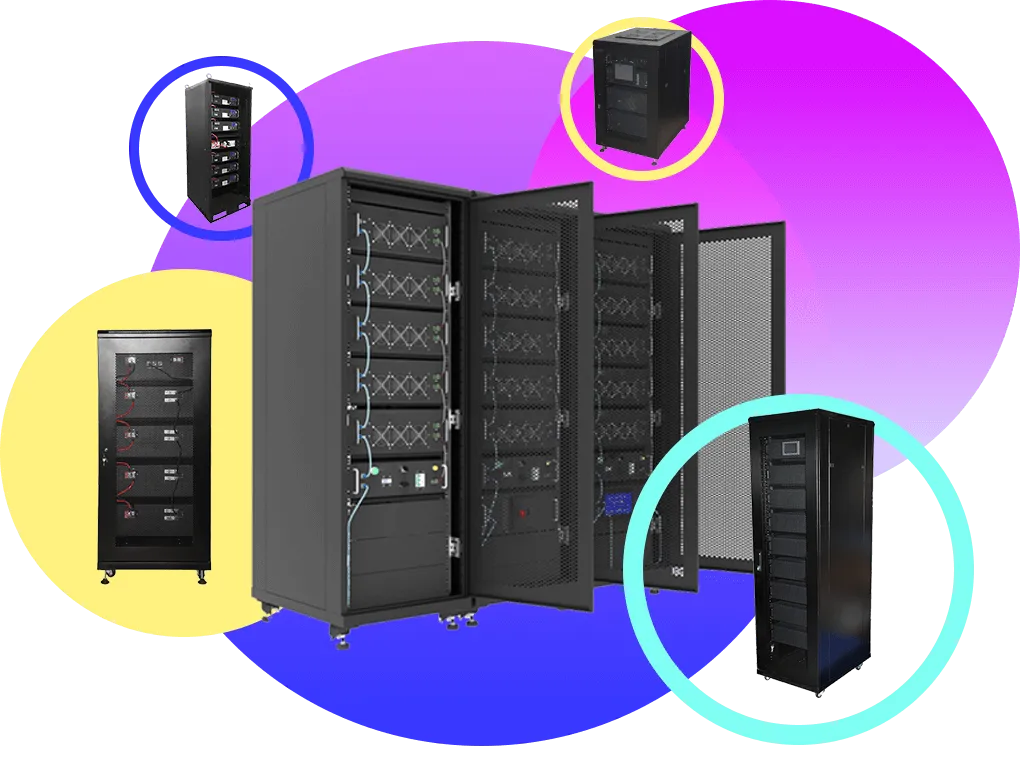
About lithium ion battery manufacturers
TYCORUN® has more than 14 years of experience in the lithium battery industry and is a Chinese high-tech enterprise that develops, produces and sells various new energy battery products.
We’re professional on manufacturing UPS lithium ion battery. Our standard UPS Lithium battery product are 192V, 384V with 50Ah and 100Ah capacity, which is widely used for UPS system around the world.
High quality assurance
TYCORUN is determined to become a leader in the lithium battery industry, quality is our culture!
On time delivery
With several years experience on UPS lithium battery, we hundred of successful case for shipping lithium batteries ups and batteries. We can deliver to you on time!
Factory wholesale price
We promise to let customers get the most cost-effective UPS lithium ion battery.
Reliable Service Assurance
Provide UPS lithium ion battery OEM, ODM and full set of certificates.
Video Gallery
Lithium ion Battery News

One-stop Africa battery swap solution – new energy electric motorcycle intelligent operation management
This article will cover the current situation of Africa’s market, the rapid development of the Africa battery swap industrial chain and Tycorun’s battery swap solution.

Top 6 high-rate cell companies in China
Among the manufacturer producing high rate battery, BAK, EVE, LISHEN, MOLICEL, SAMSUNG SDI, and SunPower stand out for their outstanding products.

Top 10 solid state battery manufacturers in China
China’s solid state battery development is in the accelerated stage, the top 10 solid state battery manufacturers mainly have the following

New Ganfeng battery – ultra safe semi-solid battery with high performance
This article details Ganfeng Lithium’s solid-state battery development, technological innovations, and the performance of the ganfeng battery in safety tests.

Top 5 electric cargo tricycle in China
This review presents the top 5 electric cargo tricycles in China, featuring detailed specifications and performance insights. Evaluating criteria such as load capacity, battery efficiency, and safety features, this guide assists buyers in selecting the ideal tricycle based on individual requirements.
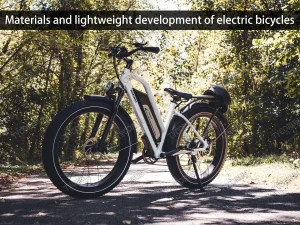
Materials and lightweight development of electric bicycles
This article provides an insightful exploration into the development of electric bicycles, focusing on advancements in materials and lightweighting techniques. It delves into the historical evolution of electric bicycles, analyzes various bicycle frame materials, discusses the development of electric power assist technology, and offers an overview of the electric assist bicycle market. Through detailed examination and analysis, it highlights the importance of lightweighting for electric bicycles and identifies key trends shaping the industry’s future.

